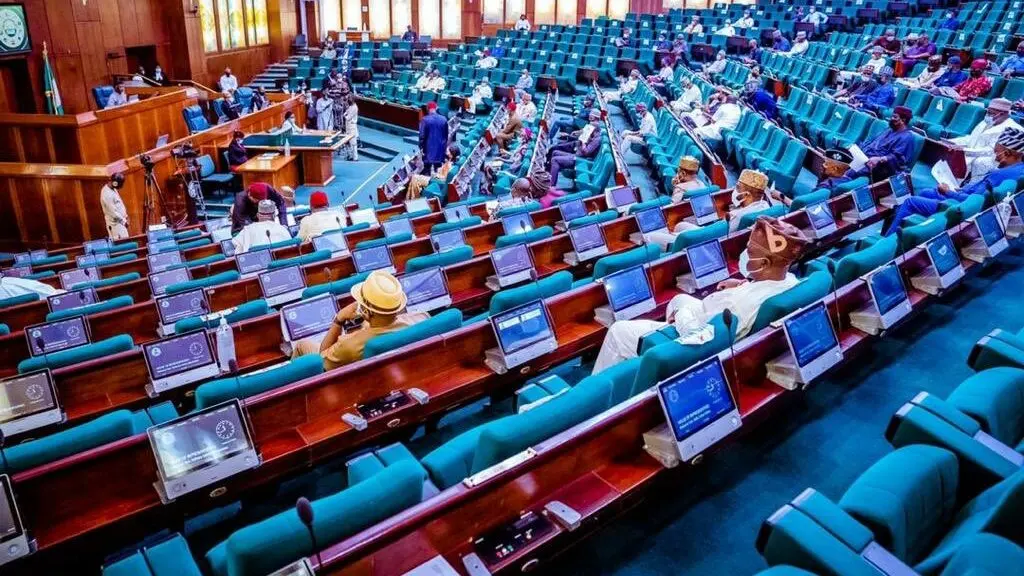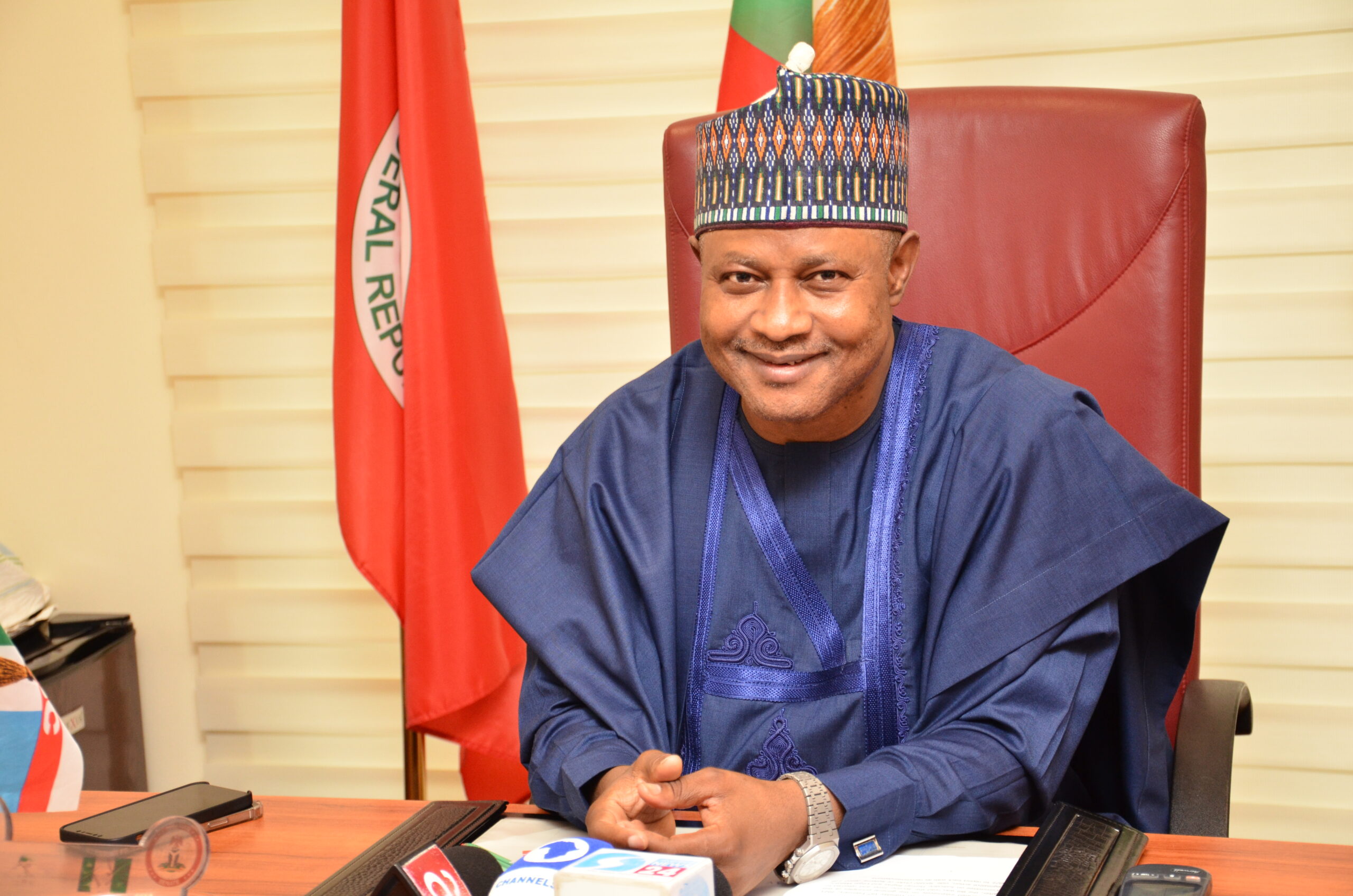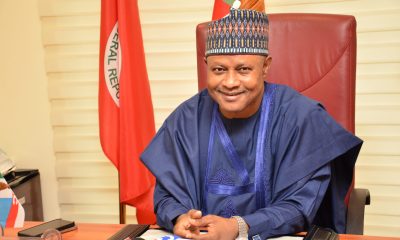NEWS
NiMet Tasks Nasarawa Farmers to Adhere to Seasonal Prediction

The Nigerian Meteorological Agency (NiMet) has advised farmers in Nasarawa State to adhere to seasonal climate prediction and crop-weather calendar for the 2024 planting season in order to prevent losses.
Mr James Adamu, Chief Meteorologist (Agriculture), NiMet, gave the advice during a one-day virtual workshop for 2024 Seasonal Climate Prediction and Crop – Weather Calendar for Nasarawa state.
The workshop was organised by Human and Environmental Development Agenda (HEDA) Resources Centre in collaboration with NiMet, with support from African Activists for Climate Justice (AACJ) through Oxfam.
According to Adamu, crop – weather calendar is a veritable tool that provides timely information on best planting dates based on the seasonal climate prediction.
He explained that farmers’ adherence to growing season prediction and crop – weather calendar would help them to understand how each farming activity is being influenced by climate and weather.
“Crop-weather calendar helps farmers to understand the time for different farming activities and the kind of additional climate information that would be useful to them,” he said.
The Chief Meteorologist, Agriculture stated that Nasarawa state is among the states predicted to experience short length of growing season.
“The growing season for 2024 is expected to end from 18 to 27 of October, the earliest cessation is predicted to be October 18 around Karu Local Government Area while the latest is from October 27 in Doma LGA respectively,” he said.
Adamu further disclosed that Nasarawa state is also predicted to experience dry spell between July and August, 2024, noting that it would last for 15 days.
Mr Joshua Jonathan, National President, Association of Small Scale Agro Producers in Nigeria (ASSAPIN), an implementing partner in Nasarawa state said that the 50 participants workshop included farmers and extension agents drawn from the three Senatorial district of the state.
He said that the essence of the workshop was to make information available to farmers to be able to take decision on their farming activities.
“NiMet has predicted this year’s rainfall pattern, as well as a dry spell in July and August, it is now left for farmers to take decision on what types of crop they are expected to plan within the period to survive.
“It means that we should shift from normal agricultural practice to smart agricultural practice,” he said.
Some participants – Alokoson Isaiah, Director, Technical Services, Nasarawa Agricultural Development Programme, Esther Rinze and Justina Bala, all promised to take back to their communities what they have learnt from the workshop.(NAN)
NEWS
US Sanctions Rwanda’s Military, Top Commanders over Fight in DR Congo

The US has imposed sanctions on the Rwandan army and four of its senior commanders, accusing them of fuelling the conflict in neighbouring Democratic Republic of the Congo.
Fighting has persisted despite a US-brokered peace deal in December between the Congolese and Rwandan governments aimed at ending the long-running conflict in eastern DR Congo.
The US treasury department accused the Rwandan army of undermining the peace deal by training, equipping and fighting alongside the M23 rebel group.
Rwanda swiftly rejected the accusations, saying the sanctions had unfairly targeted one side and “misrepresented the reality and distorted the facts of the conflict”.
Kigali denies supporting the M23, despite overwhelming evidence, and says its military presence in the region is a defensive measure against threats posed by armed groups in DR Congo to Rwanda’s security.
The sanctions come three months after Congolese President Félix Tshisekedi and his Rwandan counterpart Paul Kagame signed the Washington Accords, aimed at ending hostilities.
The ceremony was hosted by US President Donald Trump, who expressed optimism that it would bring lasting peace and described the signing as “historic”.
The M23 rebels were not signatories but have been part of a parallel peace process led by Qatar, a US ally that has strong ties with Rwanda.
Days after the Washington deal, the M23 captured the strategic Congolese city of Uvira, near the border with Burundi, forcing thousands to flee.
The group later withdrew under pressure from the US government.
However, the treasury department said on Monday that the M23’s continued presence near Burundi’s border “carries the risk of escalating the conflict into a broader regional war”.
Thousands of Rwandan troops were deployed across eastern DR Congo “where they actively engage in combat operations and facilitate M23’s control of territory”, it added.
The US expected “the immediate withdrawal of Rwanda Defence Force troops, weapons, and equipment”, Treasury Secretary Scott Bessent said.
In a separate statement about the sanctions, US state department spokesman Tommy Pigott said the M23 was “responsible for horrific human rights abuses, including summary executions and violence against civilians, including women and children”.
The sanctioned Rwandan officials include army chief of staff Vincent Nyakarundi, Ruki Karusisi, commander of the 5th Infantry Division, Mubarakh Muganga, Rwanda’s chief of defence staff and Stanislas Gashugi, head of special operations.
The sanctions freeze any assets held in the US by the RDF or the four officers, and bar US individuals and entities from conducting financial transactions with them.
The Congolese government expressed its “deep appreciation” to the US and said the sanctions were “a clear signal of support” for the respect of its “sovereignty and territorial integrity”.
The Trump administration said it was “prepared to use all available tools” to ensure Rwanda and the DR Congo delivered on their promises.
Trump had hailed the December deal as a way to secure critical minerals from eastern DR Congo – the country has reserves of copper and cobalt, which are used to make batteries for products including mobile phones and electric vehicles.
The mineral-rich east of DR Congo has been dogged by conflict for more than 30 years, since the 1994 Rwandan genocide.
Numerous armed groups have since competed for power and control of a potential fortune.
The latest unrest escalated early last year when the M23 captured Goma, the capital of North Kivu province, on the border with Rwanda.
NEWS
Reps Reiterate Imperatives of Improving Polytechnics System

By Ubong Ukpong, Abuja
The House of Representatives on Tuesday, said it was very imperative to intentionally invest in the nation’s Polytechnics System, towards national economic growth.
The House committee on federal polytechnics and Higher Technical Education has, which unanimously adopted the budget performance of federal polytechnics in the country as a working document, said that the federal polytechnics were partners in progress.
Chairman of the committee, Rep. Faud Laguda, who reiterated the imperatives of improving the polytechnics, promised that the House would work in synergy with them.
“We are always partners in progress, everything we do is to improve and make things work better,” he said.
The lawmaker however called on the Committee of Federal Rectors (COFER) to ensure that few of the polytechnics that have not submitted their budgets do so.
According to him, federal polytechnics Ede, and some others are yet to submit their budgets.
Laguda also on behalf of the committee mandated the Registrar, Computer Professional Registration Council of Nigeria (CPN) seven days to submit all necessary documents.
He interrogated the rationale behind the coordination of eight regions offices by just 58 staff of the council.
The Registrar, Computer Professionals Registration Council of Nigeria (CPN), Mr, Adebayo Adegbiji assured of its capacity in pursuing their constitutional mandate.
Adegbiji, asserted that the council has the mandate to accredit private organizations in terms of Information and Communication Technology (ICT).
He however assured the committee of making available all the necessary documents needed by the committee in the stipulated seven days.
NEWS
Sani Warns Conflict Merchants, Pledges to Safeguard Peace in Kaduna

From Nicholas Dekera, Kaduna
Kaduna State Governor, Uba Sani has declared that his administration will not tolerate any individual or group seeking to undermine peace and security in Kaduna State, warning that those he described as “conflict merchants” would be dealt with in accordance with the law.
The governor spoke on Monday while hosting heads of security agencies to an Iftar (breaking of fast) at Government House, Kaduna, where he emphasised that the state’s diverse and delicate nature requires responsible conduct from political actors and citizens alike.
He said although his government welcomes constructive criticism from opposition parties, it would not condone the spread of falsehoods capable of inciting unrest.
“Freedom of speech is not a licence to spread fake news that could lead to loss of lives and property,” the governor said. “Some people sit in the comfort of their homes and circulate rumours on social media. We will not accept that in Kaduna State.”
Sani warned that individuals who attempt to exploit the political season to foment trouble would face the full weight of the law, stressing that peace remains non-negotiable.
According to him, Kaduna is home to people of diverse ethnic and religious backgrounds who have coexisted peacefully over the years, noting that his administration is determined to preserve the state’s long standing culture of hospitality and tolerance.
The governor reminded the security chiefs that political activities would soon intensify as party primaries are scheduled to commence in April and conclude in May, in line with the timetable released by the Independent National Electoral Commission (INEC).
He cautioned that some politicians who may lose out during party primaries could resort to misinformation and victimhood narratives to cause confusion, urging security agencies to remain vigilant and proactive.
Sani also called for greater synergy between security agencies, local government chairmen, and traditional and religious leaders at the grassroots to strengthen intelligence gathering and prevent security breaches.
He commended the security agencies for their cooperation and dedication, noting that Kaduna State has not recorded any ethno-religious crisis since he assumed office.
While acknowledging that the state is relatively peaceful, the governor said his administration remains committed to addressing residual challenges of banditry and kidnapping, adding that his doors remain open to suggestions on improving security across the state.


















